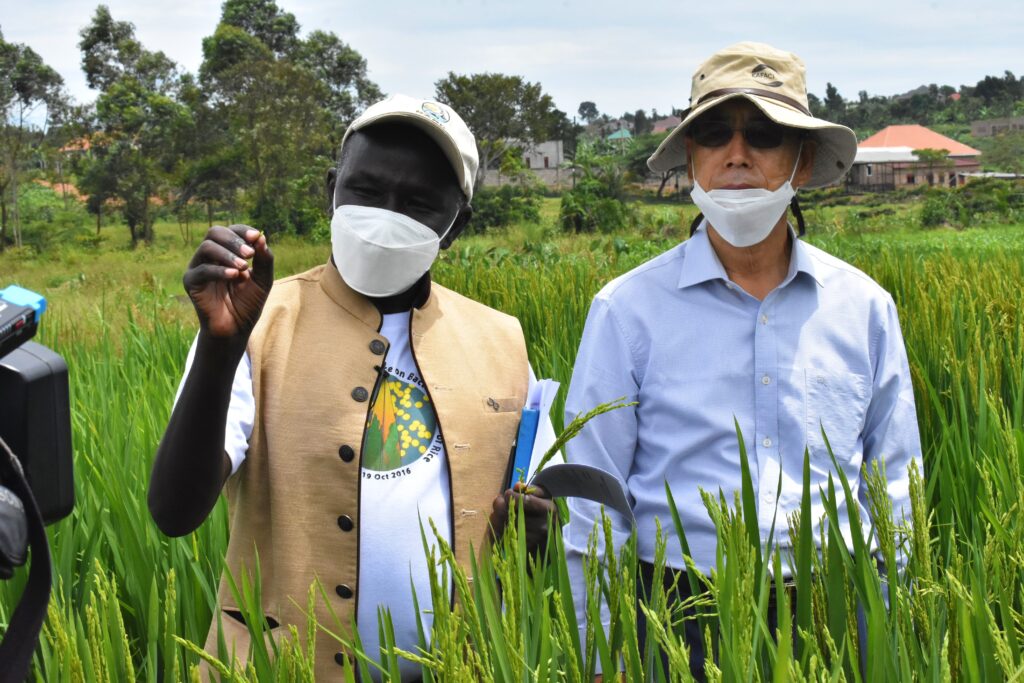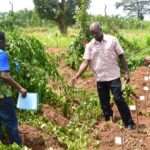The National Agricultural Research Organization has raised the need to boost rice production in the country saying this will not only promote food sustainability but also help reduce on the high rates of importation of the crop.
‘’This is not very attractive to many seed companies because once someone gets access to one cup of rice seed, a good planner will not come for rice any longer so a seed company sees this as a constraint that if they invest in it so much, the following season, nobody will come and it will remain in the stores or get sold off as grain,’’ he said.
This was revealed by Dr. Jimmy Lamo the National Crops Resources Research Institute (NaCRRI) rice coordinator during a tour to explore the progress of rice fields in Namulonge on October 17th.
According to Lamo, the rice sector is an important segment that does not only stop on employing a big number of people but also yields profitable returns to those who invest dearly in it. As a result, he urged local farmers to consider commercializing the crop to be in position to benefit from growing it.
‘’Rice is a very important food and commercial crop and it employs a number of players along this value chain and its one of the commodities with very long employment opportunities along from production, land preparation, marketing, value addition and so on.
So this is a crop that needs proper investment but very high paying in return so to those who produce it, it should be a cash crop because most rice producers sell 90% of it and less than 10% of it consume it at a family level,’’ Lamo said.
In addition, he cited out the issue of continued importation of rice more so for brands that are deemed international including Basmati. He said much as it is good for any country to import items that it does not have or produce, the idea can be overwhelming to its economy.
As a result, he implored local farmers to look out for quality seeds of those very rice varieties they admire and plant them here to be in position to even more than double their profits.
‘’If we choose to only import rice brands now like the Basmati and others, it can easily drain the country’s foreign reserve so it’s good to invest in planting it here and instead export it to other countries to enable self-sustainability and generation of more profits,’’ he implored.
Rice: Quality seed access and diseases
Responding to a question concerning rice seed access, he said this is still a big challenge not only to the farmers but also the seed selling companies. He said rice has a high multiplication rate that once a farmer gets access to starter seeds, he or she will not need to return to buy seeds for the next season.
‘’This is not very attractive to many seed companies because once someone gets access to one cup of rice seed, a good planner will not come for rice any longer so a seed company sees this as a constraint that if they invest in it so much, the following season, nobody will come and it will remain in the stores or get sold off as grain,’’ he said.
‘’This therefore means we need to empower those involved in rice production so that there are units of seed growers within to boost access and so far there is another project funded by KAFACI that is supporting moderate multiplication programs in irrigation schemes including in Doho, Mobuku irrigation scheme among others so you find that they sell sufficient information about rice seeds and they also buy it at a fair price which sorts well the issue of availability and price,” he added.



